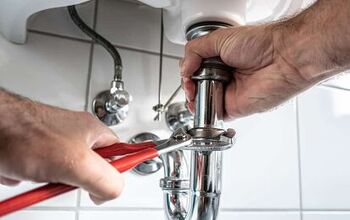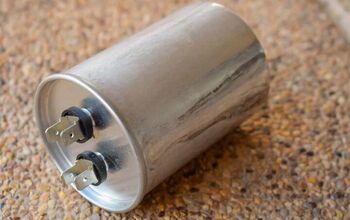How Long Does Home Inspection Take?

A home inspection is something that most of us need at one time or another, regardless if we are buying or selling our homes. While you may already know what to expect, most people want to know precisely how long this takes.
According to Home Inspector Insider, the average home inspection takes between two to three hours. They specify that a 1000-square-foot home inspection will take only an hour and a half. Of course, according to the aforementioned factors, this timing may change. Every 500 square feet of area adds a half-hour to the duration of the inspection.
In this article, we will discuss the duration of a home inspection as well as the factors that play into it. Don’t worry! There are some things that you can do to speed up the process. We share some tips for that as well.
Why Does a Home Inspection Take So Long?
When determining how long the inspection will take, the inspector’s experience is important because a veteran will be familiar with the region and know what to look for in houses based on their age. They will also know how to access systems that are more difficult to reach. Someone who is new to the work may take longer to complete the task.
These types of inspections may take longer depending on the house’s age, size, and accessibility. However, you might be wondering how long it takes for an inspection report to be completed, which, happily, isn’t affected by the house. Reports are usually ready in 1-2 days for most inspection services.
What Factors Influence the Duration of a Home Inspection?
Because both buyers and sellers may have their own motivations for arranging the inspection, the length of time it takes depends on the variables involved. When estimating how long the examination will take, take into account the following factors:
- The age and size of the house. Larger homes have more features to check, and older homes are more likely to have obsolete plumbing, roofing, and electrical systems, as well as previous damage and mold. This is something that the inspector will need to search for.
- Accessibility. In terms of the house’s design, accessibility also influences how long a home inspection takes. It will take longer if it has a yard, basement, or other features that are more difficult to assess.
- State legislation also affects the length of a house inspection. Although there is no federal legislation requiring an inspection, states frequently have regulations in place. What goes into an inspection report varies by state. This is especially true when it comes to repairs for homes in older neighborhoods, which are more likely to have outdated HVAC systems, plumbing, and roofing.
What Happens During a Home Inspection?
An inspector will examine the house’s major systems for health risk, safety, and livability during a home inspection. This comprises elements such as:
- The foundation
- Plumbing
- Heating and cooling systems
- Electrical system
- Other components that are critical to the house’s operation
Remember that aesthetic issues such as peeling wallpaper or chipped fittings will not be examined. During an inspection, only the major systems that potentially affect the house’s safety and livability will be checked over.
Who Performs a Home Inspection?
A buyer commissions a house inspection, and the buyer’s real estate agent employs the inspector to conduct the inspection without the seller present. The inspector’s recommendation can then be used to pass on the agency, and buyer’s renegotiation plans to the seller.
If a seller chooses to sell their property the traditional way, through a real estate agent, they can hire a certified home inspector to protect their investment before they even have a buyer lined up.
This is because errors in a house listing might cause a deal to be delayed or even canceled. Conducting this examination ahead of time and including the results in the listing could save the seller time and money.
What Happens After a Home Inspection?
After a home inspection, the inspector puts their notes into a report, which is usually accessible to your agent within 1-2 days of the inspection.
Because they can type it up and acquire the appropriate approval electronically, several inspection services now provide the report to you or your agent on-site after the inspection.
After a house inspection, what happens next? The realtor and the buyer or seller, depending on who did the inspection, analyze the report to determine the next steps. For a buyer, this will most likely mean either sticking to the original offer contract and moving forward with the purchase or renegotiating their offer on the house.
How Can I Speed Up My Home Inspection?
It’s natural for a seller to be apprehensive during the home inspection process. You don’t want the contract to fall through, and you certainly don’t want to be saddled with the cost and stress of repairs if your buyer demands them as a condition. There are certain things you may do to prepare for the inspection, fortunately.
Make Sure All Areas Are Accessible
Make sure the home inspector has easy access to all areas of the house. If they can’t get to a location, they won’t be able to inspect it, which will be a red flag for potential purchasers.
Remove any obstructions to the inspector’s access to areas or systems that need to be examined, such as basements, attics, furnace rooms, and under all of the sinks.
Clear Out Your Perimeter
The inspector will assess the exterior of your home, including siding, trims, and caulking around windows and doors, in addition to the interior functioning of your home.
Plants, garbage cans, and storage goods should all be removed from areas around your home so that they can have an unobstructed view.
Check the Roof
When was the last time you looked up at your house’s roof? It’s been a while for most sellers. However, because the roof is an essential aspect of the home inspection, you can’t overlook it in your preparations.
Clean moss and debris from the gutters. Using a ladder, inspect for broken or missing tiles, and ensure sure downspouts are in the right place. If there is any damage to the roof, you should have it repaired before the home inspection.
Keep a Clean House
If you’ve already been through the process of selling your home, you’re probably quite good at keeping things neat and tidy at this point. After an accepted offer, resist the impulse to let things pile up and keep the house clean for the home inspection.
The cleanliness of your home has no bearing on the inspection, but a filthy or messy house may lead the inspector to suspect that other sections of the property aren’t being adequately cared for as well.
Replace Dead or Dull Light Bulbs
A blown bulb can indicate one of two things to a home inspector: either the bulb is broken or the fixture’s wiring is bad.
Either the inspector will waste time evaluating whether a fixture is inoperable, or they will just note that a probable defect exists without further investigation. Make sure that all of your bulbs are in functioning order to avoid both of these possibilities.
Check the Toilets
Is your toilet running for an extended period of time after you flush? It’s a typical issue that’s easy to overlook when you’re dealing with it on a daily basis, but it’s not something you want your home inspector to notice.
Fixing a running toilet is a simple and inexpensive fix that you can do yourself with a quick trip to the hardware store, so take care of it before the inspection.
Change Your Furnace Return Filter
It is critical to replace your furnace filter on a regular basis to ensure good air quality and the proper operation of your heating system.
Instead of worrying the inspector that you haven’t been paying attention to your home’s heating and air conditioning, clean or replace the existing filter to demonstrate that you have.
Turn On Your Pilot Lights
Your water heater’s pilot light is generally always on (and you’d notice if it wasn’t), but what about the pilot light in your gas fireplace?
Because many homes keep their fireplaces off during the summer, it’s crucial to double-check that the pilot light – as well as the fireplace itself – is operational before the inspection. Now is the moment to relight your fireplace’s pilot light if it has been turned off.
Look Closely at Your Doors
Take a trip around your house and inspect each door to ensure that it is in good functioning order. Interior and exterior doors should easily latch into the frame, doorknobs should be firmly in place, and any locks, particularly on doors that lead outside, should function properly.
Check all doors, particularly ones you don’t use very often because cold or heat can deform otherwise functional doors and cause difficulties.
Repair Faulty Cabinets
Cabinet hinges can become a little slack over time, resulting in doors that don’t close properly or aren’t flush with the frame. If you have an off-kilter cabinet, adjusting the hinge with a screwdriver is generally all it takes to correct it.
Look For Any Signs of Water Damage or Leaking
The house inspector will certainly be looking for signs of leaks or water damage, so be ahead of them and fix any water-related concerns before the inspection.
Check under sinks, behind faucets, around the base of your toilets, bathtubs, and/or showers, and under any appliances that may leak, such as dishwashers and refrigerators, when checking for leaks.
In the case of water damage, look for signs of warping, sagging, or buckling on the walls, ceilings, and flooring. Don’t forget to look for signs of leaks or water damage on the outside of your home as well. If you notice water pooling near your home’s foundation, you should be concerned.
Take Care of Any Bug Problems
Most of us have to deal with an errant ant or spider in the house on occasion, especially during the summer.
However, if you have a wasp nest in your garden or observe lines of ants in your kitchen or other inside places on a daily basis, you should address these issues before the inspection. Most bugs aren’t a big concern, but they can turn off potential consumers.
Make Sure You Are Prepared
You should have done everything you can to prepare for the house inspection by the day of the inspection. It’s now just a matter of making sure everything works as smoothly as possible.
Keep all utilities turned on, double-check that you’ve left clear access to all locations and systems throughout the house, and unlock any gates, electrical boxes, or other spots you usually keep secure.
Most importantly, arrive at least two hours before the inspector is scheduled to arrive (inspectors are notorious for being on time), and prepare yourself and your family to leave the house during the inspection. If you can’t bring your pets with you, make sure they’re safely crated or otherwise secured.

Heather is a passionate writer who loves anything DIY. Growing up, she learned everything from home repairs to design, and wants to share her tips with you. When she's not writing, she's usually hiking or searching for her next DIY project.
More by Heather Robbins












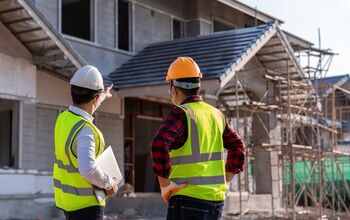
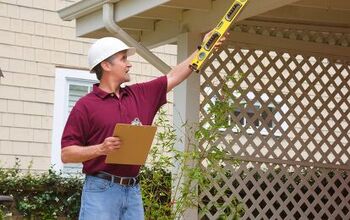
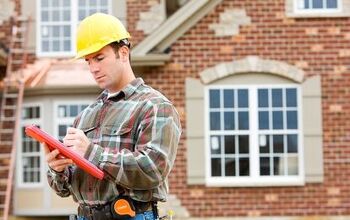
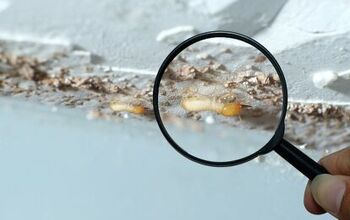




![12 Washing Machine Brands to Avoid [with Recall Data]](https://cdn-fastly.upgradedhome.com/media/2023/07/31/9075781/12-washing-machine-brands-to-avoid-with-recall-data.jpg?size=350x220)


